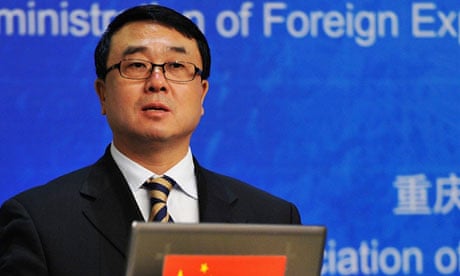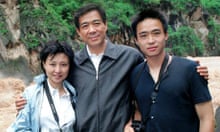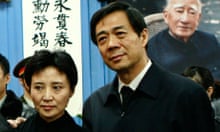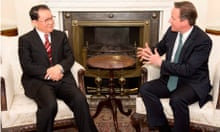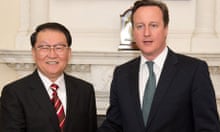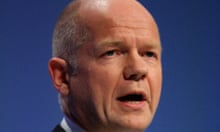Washington is desperately trying to avoid being drawn into the internal Chinese struggle that began with the attempted defection of a provincial official in February and has since expanded to include the suspected poisoning of British businessman Neil Heywood.
As the scandal surrounding Bo Xilai and his wife Gu Kailai has spiralled into the biggest crisis confronting Beijing for years, US officials repeatedly refused to comment on the power struggle.
At the state department's daily press briefing on Wednesday, spokesman Mark Toner declined to discuss the issue in detail, particularly the attempted defection of the Chongqing vice-mayor Wang Lijun.
Toner stuck rigidly to a short, agreed version of events. "Wang Lijun requested a meeting with the US consulate-general in early February. He was there on Monday 6 and left on Tuesday February 7. And he left by his own volition. But I can't talk about the discussions," he said.
Wang, who has a reputation as a crime-fighter, was a confidante of Bo, the former Communist party boss in Chongqing. His wife in under investigation in connection with Heywood's death.
Wang was refused asylum at the consulate in Chengdu and left the consulate 36 hours after his arrival. It has been widely reported that he spoke to US officials about corruption. Apparently fearing for his life if he remained in Chengdu, he helped negotiate while at the consulate, with the aid of US officials, a safe conduct to Beijing, where he is now being held.
Given the embarrassment that Wang has caused and the fact that he went to the consulate seeking asylum, he could be severely punished.
Members of Congress are pressing the state department on why Wang was not given asylum, why the US failed to accept his offer of information about alleged corruption among high-ranking Chinese officials and why the diplomats may have put his life at risk by failing to grant him asylum.
Wang's arrival at the consulate came at a sensitive time, about a week before Xi Jinping, tipped as a future Chinese leader, was to visit Washington. If the US had granted asylum, it could have strained US-Chinese relations, according to the New York Times.
The Times also reported that it would have been difficult to spirit him out of the country and, given his background in police work, it would also have been difficult to find grounds for asylum. Significantly, the issue went all the way up the chain to the White House for discussion while Wang was still in the consulate.
The Obama administration has increasingly engaged with China, establishing stronger ties and channels of communications while at the same time in competition over trade and over military and diplomatic influence in the region.
Toner said he was unaware of whether US diplomats had attempted to ascertain the status of Wang since leaving the consulate.
Asked why he had not been granted asylum, Toner said: "Asylum cases follow a precise legal framework."
Asked if the US wanted to avoid being caught up in an internal Chinese power struggle, Toner replied: "It would not be my position to comment on internal Chinese politics … Let's end this line of conversation because it is not productive."
Bo's son, Bo Guagua, is a student at Harvard. The state department denied reports that he had been escorted from his flat by US security guards for his own protection. He remains a student at Harvard, US officials said.
There was however no sign of him at his apartment close to the university on Wednesday. A building manager would not comment when Bo Guagua's name was mentioned, and most people coming in and out of the seven stores building had not heard of the politician's son, who is studying for a masters in public policy. A sign that perhaps security was still tight at the apartment block came when the building manager rang the police following the Guardian's inquiries, who arrived within five minutes. The officers could shed no light on Bo Guagua's whereabouts.
Across the road from the apartment block, Guagua, said to be charismatic with a tendency towards the flamboyant, had made more of a mark.
A woman working in a dry cleaning business, who asked not to be named, said Guagua was "very nice", as well as being "handsome". He had been getting his cleaning done there for the last few months, she said, adding that he owned a lot of Dolce and Gabbana shirts. She said Guagua would normally be speaking on the phone in Chinese while he was in the shop. She said a couple of Chinese men had come into the shop in the latter half of last week asking about his whereabouts and spending habits.
There was no reply at the sprawling red brick house owned by Bo Xilai's sister, Jieying Bo, in Wellesley Hills, around 15 miles west of Boston.
Jieying has not been seen for over a year, last visiting in 2010, when she stayed for just a few days.
"We're told it's for health reasons," said one neighbour, who asked not to be named. She said Jieying was "a great neighbour, because she's never here".
